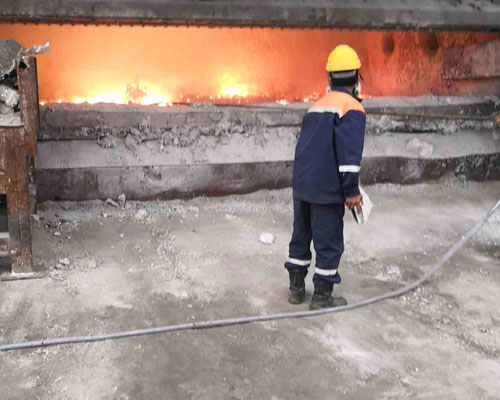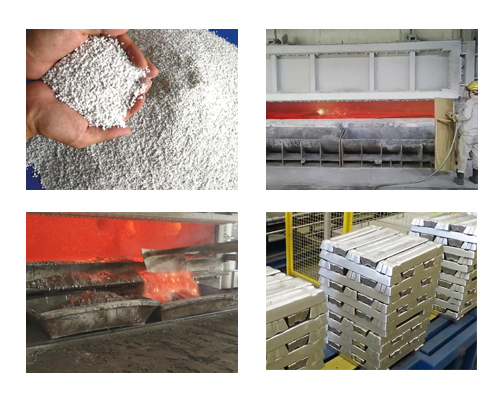Foundry refining flux is special blends of typically solid, inorganic compounds designed for cleaning, degassing, grain refining of molten aluminum alloys and other purposes. A flux recipe varies depending on its purpose and other process variables, such as alloy and temperature.
Foundry Refining Flux Features:
(1). Remarkable reduction of non-metallic impurity and cavities in the cast.
(2). Separate the slag from Aluminum molten easily.
(3). Less wastage. The slag separated from Aluminum molten could not hold together, less metal in it, the metal smelting-loss is decreased.
(4). No toxic gas or obvious smoke in the process. It’s harmless to workers, equipment, and the environment.
(5). Use conveniently.
What Foundry Refining Flux Does?
Inclusions can be formed when refractory particles detach due to a reaction with aluminum. New scraps usually contain a very low amount of inclusions. Furthermore, the inclusions are divided into two different types, the exogenous and indigenous. Exogenous inclusions can be found in the forms of dirt and oxides in scrap. They are particles that exist as a separate phase before melting.
Fluxes are often necessary when using scrap material in the melt. It helps impurities and slag float to the top of the melt. It also creates a floating layer on top of the molten metal that protects the molten metal from oxidation.
Using a good flux helps to recover metal that would otherwise be stuck to the dross and lost in skimming. Can be used in hot crucibles or reverb furnaces.

How to Use Refining Flux?
If a cover flux during melting is desired apply an initial application of flux to the cold, un-melted metal in a crucible. During firing, this will provide a floating cover layer to protect the metal from gas absorption.
Heat the charge to pouring temperature.
Skim the initial dross from the melted charge and stir in the second charge of flux to the molten metal. A powdery dross low in metallics will result. The metal is now ready to be skimmed of final dross and poured.

